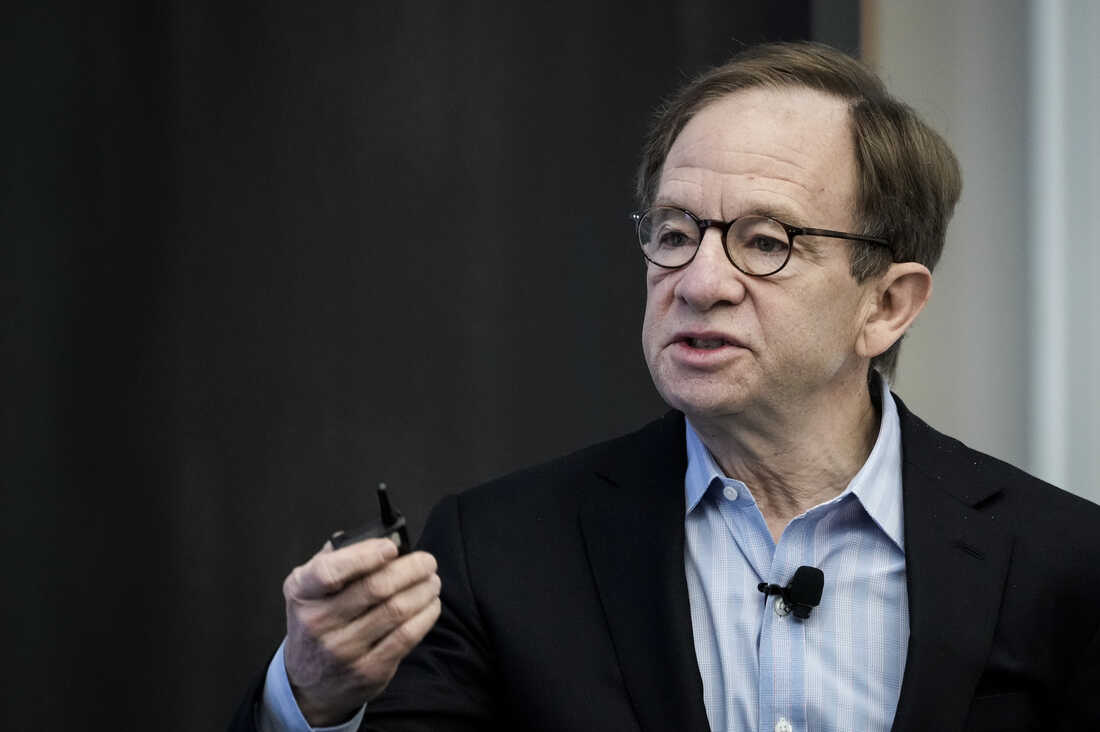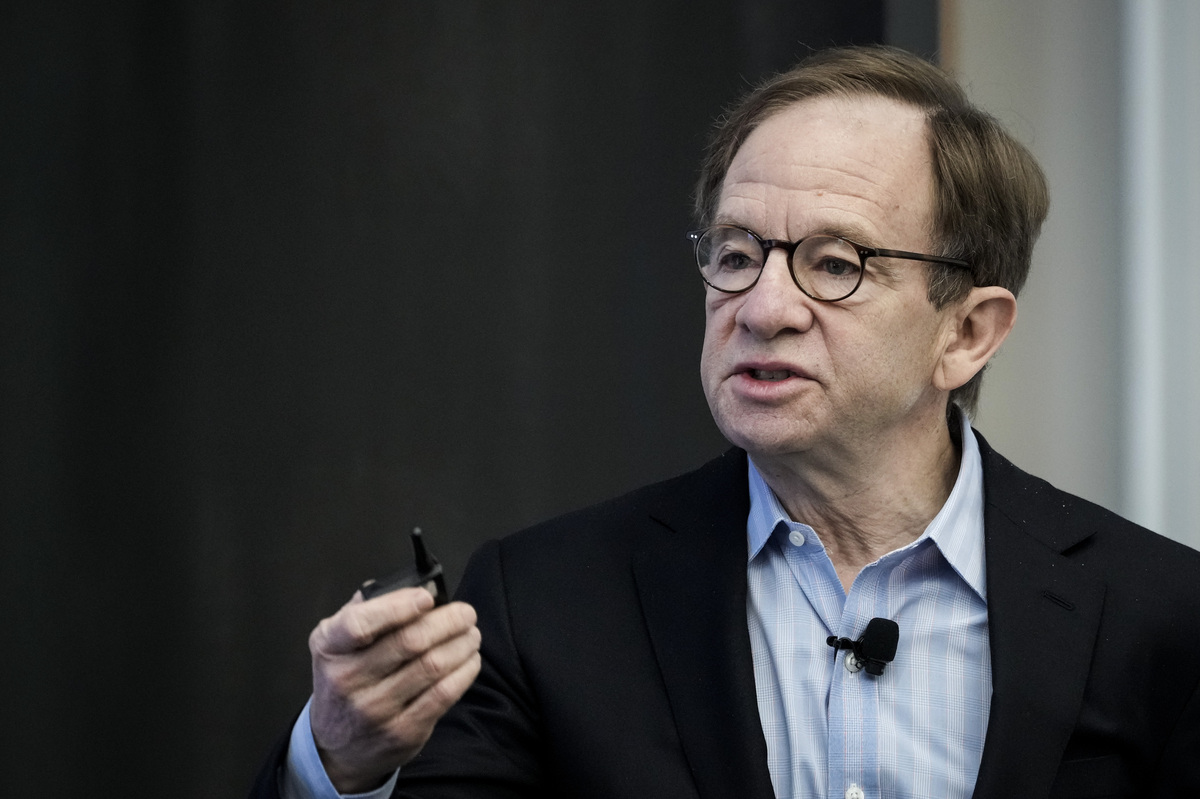[ad_1]

Steven Rattner says the gap in pay between workers and auto executives is “unconscionable.”
Drew Angerer/Getty Images
hide caption
toggle caption
Drew Angerer/Getty Images

Steven Rattner says the gap in pay between workers and auto executives is “unconscionable.”
Drew Angerer/Getty Images
He was the lead adviser for the Obama administration when the government bailed out auto companies in 2009 — following the global financial crisis. Now, he is weighing in on the union strikes against the big 3 American automakers.
Who is he? Steven Rattner.
- In 2009, the U.S. government stepped in and bailed out struggling auto companies, forcing G.M. and Chrysler to restructure.
- In that negotiation, the United Auto Workers union — the one striking now — accepted concessions to make the money work out.
- Rattner was the lead auto advisor to the Presidential Task Force on the Auto Industry in that process, which led to his nickname in the press as the “car czar.”
What’s the big deal?
- On Friday, the UAW expanded its strike against the “big three” American car companies, by adding two additional assembly plants, and thousands more people walked off their jobs.
- You can dive deeper into the background here.
- UAW President Shawn Fain said: “We gave up a lot [in 2009] and the companies were in trouble, but now they’re doing incredibly well and guess what? We should be doing incredibly well too.”
- In a New York Times opinion article published Sept. 20, Rattner argued that he would like to see auto workers paid more — but that he believed the UAW was “overplaying its hand.”
Want more on this story? Listen to the Consider This episode about President Biden on the picket line.

United Auto Workers members strike the General Motors Lansing Delta Assembly Plant on Friday in Lansing, Michigan.
Bill Pugliano/Getty Images
hide caption
toggle caption
Bill Pugliano/Getty Images
What is Rattner’s argument?
In an interview with All Things Considered host Ailsa Chang on Friday, Rattner shared how he thinks these organizing efforts might play out.
On how this could backfire on unions:
Look, it’s normal in negotiations for the party that’s trying to get something to ask for more than they expect to get, or could possibly get. And it’s equally normal for the other side of that bargain to start with relatively low proposals and work their way up. That’s all totally normal.
The list of things that the UAW has asked for go beyond anything that corresponds to reality today, for better or worse. It’s unfortunate in many ways, but it is what it is.
For example, they’ve asked for a 32-hour week. In other words, to work four days and get paid for five, having one personal day a week off. They started with 40% wage increases. I think they’re down to maybe around 30 or 35 at the moment, and that’s a fair place to be bargaining.
But they’ve also asked, for example, to have the old style defined benefit pension plans — that I think very few employers offer to new workers anymore — restored.
They’ve asked for certain changes that were made, and the retiree health care programs in the course of all this — that again, bring these companies more in line with normal practice rather than overly generous practice — they’ve asked for those to become what I would call overly generous again.
And why he thinks those demands are unrealistic:
Because you have to put the whole thing in context. GM and Ford and Chrysler are doing quite well at the moment. They have cash, they have profits, they have the ability to pay them more, but they also have to compete against other companies. And in the South, you have companies like Toyota and Honda that don’t have unions at all.
In Mexico, you have workers making literally $9 or $10 a day and are very productive, according to what auto executives tell me.
And so, if the Detroit companies have an excessively high burden of wage costs, or fringe benefit costs, then they can’t compete. They lose car sales. Ultimately, the workers lose jobs and the jobs move to these other places.
On addressing the gap in compensation between workers and auto executives:
I think that gap is unconscionable and it exists, but these companies are not outliers. This is the trend that we see all across American business.
But you can narrow that gap two ways. You can bring the workers up, or you can bring the CEOs down. And in effect, I’m proposing a combination of both. It’s not a question of aggregate dollars.
There’s no amount of compensation in dollars that you can take away from these C-suite executives, and create a pool of money that can then make a meaningful difference to workers, just given the number of workers there are relative to the number of CEOs and CFOs and so forth.
But I think it’s very important symbolically that there be fairness here and there’s not fairness at the moment. I would absolutely concede that.
So, what now?
- The running total of striking UAW workers has hit about 25,000 with this expansion on Friday.
- It comes amid other instances of labor organizing in the U.S., including by UPS drivers, airline pilots, Vegas hospitality workers, and those in the entertainment industry.
Learn more:
[ad_2]
Source link

Comments are closed.